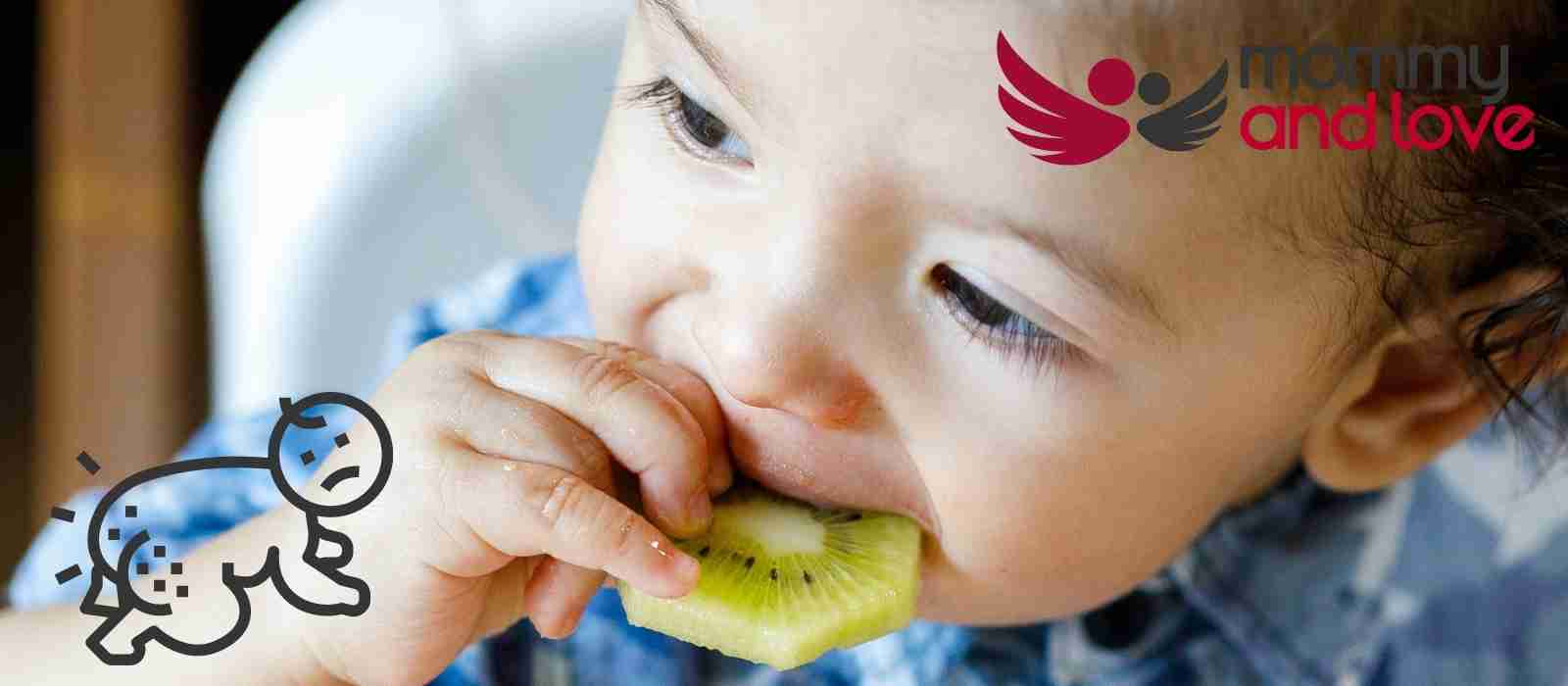There is a lot of debate surrounding whether or not kiwi can cause nappy rash. There is no conclusive evidence that kiwi can cause a nappy rash. However, there have been reports from parents that their babies developed a nappy rash after feeding on kiwi.
In this blog post, we will explore the connection between kiwi fruit and nappy rash.
If your child has nappy rash, firstly you need to determine what type of nappy rash it is. If you think it could be down to a food intolerance,
Is kiwi good for babies?
Yes. Kiwi is an excellent choice for babies because it has fewer natural sugars than other food and is high in key minerals. It belongs to the Actinidiaceae family and is high in vitamin C, which strengthens immunity, fuels organ processes, promotes cell growth, and aids iron absorption in your baby’s body. It pairs well with other fruits such as sweet bananas and strawberries.
Kiwi also contains copper, fiber, and vitamins E and K, which help to maintain healthy blood and immunity. This fruit also appears to have extra qualities that benefit a baby with asthma symptoms such as coughing, shortness of breath, and wheezing.
When are babies allowed to eat kiwi?
Kiwi can be introduced as a new food as soon as your baby is ready to begin solid foods, which is usually about 6-8 months old. Please keep in mind that kiwi, while healthy like other acidic fruits, can cause or worsen a nappy rash, so start slowly when introducing it to your baby.
If your baby has demonstrated any food allergies, such as gastrointestinal difficulties or a tendency to get rashes, you should wait until she is between 10 and 12 months old before introducing kiwi.
As previously said, kiwi is not a common allergen. This means most babies don’t normally have an allergic reaction to eating kiwis. Therefore there should be no worries about developing a real sensitivity to it.
Between the ages of 8 and 10 months, serve kiwi chopped into little dice or mashed for the first time. You can also peel the skin and remove the seeds and use your food processor to make a puree or smoothies out of kiwis.
Can a baby consume kiwi on a daily basis?
Despite its many benefits and advantages, kiwi is rather acidic in nature. The amount of acid in kiwi fruit can cause difficulties in an eight-month-old baby who has only recently begun feeding solid foods. Just like acidic foods like citrus fruits that can cause diaper rash, and strawberries that can cause skin irritations, you need to limit the amount you give your child.
As a result, rather than feeding kiwi to your infant every day, you should space it out. Too much acidic fruit at once will lead to acidic poop which causes diaper rash.
This precaution would not only prevent the newborn from the negative consequences of kiwi consumption on a daily basis, but it would also aid in the optimal absorption of nutrients contained in the fruit.
Is it common to have an allergy to kiwi fruit?
No. Kiwi allergies are uncommon, but people suffering from Oral Allergy Syndrome may be sensitive to the fruit. Individuals with the latex-fruit syndrome may also react to kiwi.
Begin by serving a tiny amount of kiwi on its own, just as you would with any new dish. If there is no negative reaction, gradually raise the amount over subsequent serves.
Many of the symptoms of kiwi sensitivity are caused by an immune system response.
Can eating kiwi cause nappy rash?
The answer to this question is a bit complicated. While kiwi doesn’t directly cause a nappy rash, it may exacerbate it if your baby already has a nappy rash.
Kiwi is an acidic fruit and might be too much for your baby’s digestive system.
Adding kiwi to your baby’s diet should be done in small amounts. Before you give your baby kiwi, know that kiwi may cause an allergic reaction like skin irritation which usually starts around the mouth, diarrhea, vomiting and other adverse reaction.
Letting your child experience new tastes is good. But allergic reactions to foods should not be taken lightly. When your baby begins to develop a baby skin rash or has allergic reactions after she eats kiwi, do not feed kiwi to her.
Consider removing other foods as well from her diet and see if she continues to show adverse reactions. Seek medical attention from a medical professional immediately if
Conclusion
There are a lot of myths about kiwi and nappy rash. First, it is important to know that most babies don’t have an allergic reaction when they consume kiwi.
However, if your baby has been suffering from a bad rash or any other allergic reaction, you may want to wait until she’s 10-12 months old before introducing her to this fruit – just as with all new foods.
That being said, the acidic nature of kiwi can make existing skin rashes worse. If your baby already suffers from nappy rashes or another adverse reaction after feeding this fruit then stop giving them more!
Kiwis contain many amazing benefits for children but should be served in small amounts because they’re too acidic for young infants who are still developing their digestive systems. As always, consult with your doctor if you have any questions about what’s best for your baby.




